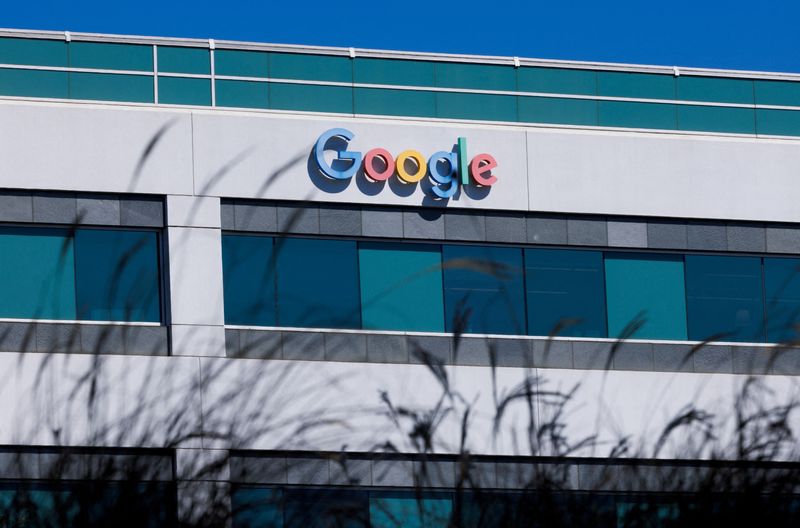By Foo Yun Chee
BRUSSELS (Reuters) – Alphabet (NASDAQ:)’s Google faced a call on Wednesday for additional investigations into its compliance with landmark European Union rules aimed at reining in Big Tech.
Privacy-focused internet search engine DuckDuckGo, which research company Statista said had a global market share of 0.54% in January this year, urged the European Commission to open three additional investigations.
Under the EU’s Digital Markets Act adopted in 2022, Google and six other tech companies are required to make it easier for users to switch to rival services and banned from favouring their products on their platforms, among other obligations.
“The DMA has yet to achieve its full potential, the search market in the EU has seen little movement, and we believe launching formal investigations is the only way to force Google into compliance,” Kamyl Bazbaz, DuckDuckGo’s senior vice-president for public affairs, wrote in a blog.
The world’s most popular internet search engine is already the target of two DMA investigations related to its app store Google Play’s rules and whether it discriminates against third-party services on Google search results.
Google said it was working with industry, experts and the Commission and has made significant changes to its products to comply with the DMA.
“This includes providing consumers and businesses with even more choices about what services they use. When consumers use our services, they expect their data to be protected. We will not compromise that trust in order to give competitors more access to sensitive data,” a Google spokesperson said.
The Commission declined to comment on DuckDuckgo’s allegations, saying it was fully committed to ensuring the implementation and enforcement of the DMA.
Bazbaz said one investigation should target Google’s proposal to license anonymised search data to rivals directed at European users, saying this data set likely excludes 99% of search queries, effectively making it useless to competitors.
“Google is trying to avoid its legal obligation in the name of privacy, which is ironic coming from the Internet’s biggest tracker,” Bazbaz said.

He said Google should also be investigated for allegedly failing to comply with the DMA obligations to allow users to easily switch to rival search engines.
If companies are found to have breached the DMA it can cost them as much as 10% of their global annual turnover.

